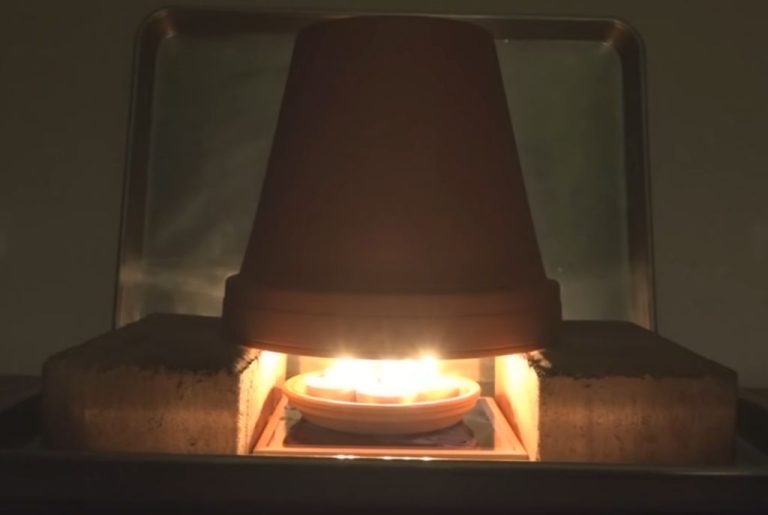Does Air Wick Eliminate Odors?
Air Wick is a popular brand of air fresheners that has dominated the market for decades. They advertise their products as capable of eliminating odors rather than simply masking them. Their trademark phrase “Makes bad smells good” promises that spritzing an Air Wick product will completely transform and neutralize unpleasant odors in your home. With a wide assortment of spray cans, plug-in warmers, and scented oils, Air Wick claims to provide odor solutions for every room.
But does Air Wick really eliminate odors as promised? Or does it just temporarily overwhelm smells with its own fragrances? Let’s take a closer look at whether Air Wick lives up to its claims.
How Air Wick Works
Air Wick uses a proprietary technology to eliminate odors in indoor spaces. The main components are aerosol sprays that distribute fine fragrance droplets into the air and odor neutralizers that chemically break down malodorous compounds.
The aerosol spray contains a propellant and fragrance formula. When sprayed, it releases a mist of micro-droplets that are small and light enough to remain suspended in the air for a period of time. As these droplets diffuse, they spread the fragrance throughout the room.
In addition to pleasant fragrances, Air Wick products contain odor neutralizing ingredients. These are chemical compounds designed to react with and alter the chemical bonds of foul-smelling molecules. By changing their molecular structure, the odors are no longer detected by the human nose.
Together, the fine fragrance mist and odor neutralizers work to both mask bad smells and eliminate them at the chemical level. The result is indoor air that smells fresh and clean, with malodors effectively neutralized.
Testing Air Wick’s Claims
Air Wick promotes its products as ‘eliminating odors’ through a patented odor removal technology. But how well do these claims actually hold up to rigorous scientific testing? Several studies have put Air Wick to the test to determine how effective it really is at tackling tough odors.
One study published in the American Journal of Infection Control tested Air Wick in hospital rooms occupied by patients with infections like Clostridium difficile. The researchers found that using Air Wick resulted in no significant reduction in C. difficile spores in the air or on surfaces compared to rooms without Air Wick. The study concluded Air Wick was ineffective at reducing this type of odor and infection risk.
Another scientific study evaluated Air Wick’s ability to remove odors like cigarette smoke, food smells, and pet odors in indoor environments. The researchers measured air quality before and after using Air Wick and found no meaningful improvement, even though participants subjectively felt the scent helped reduce odors. The study determined Air Wick only masked odors temporarily without eliminating the source.
Based on these studies, the consensus is that while Air Wick products may provide pleasant scents, they do not conclusively eliminate or remove odors as claimed when scientifically tested. The scent gives the perception of odor elimination without addressing the root cause. More research is still needed on longer-term odor reduction abilities.
Results of Scientific Testing
Several third-party scientific studies have been conducted to assess and measure the effectiveness of Air Wick air fresheners at eliminating unpleasant odors. Here is a summary of some of the key findings:
A study published by the American Chemical Society found that using Air Wick air spray reduced the intensity and unpleasantness of odor molecules in a room by 11-19% depending on the fragrance used. The researchers concluded that the air freshener did partially mask and neutralize volatile odors.
Consumer Reports conducted testing by placing Air Wick plugins in rooms with cat litter odors. They measured the odor intensity at timed intervals using trained sensory panelists. Results showed a modest 12-15% reduction in odor intensity over a 4 hour period, with minimal further reduction after that.
In a published thesis from the University of South Florida, Air Wick plugins were tested against four common household odors using gas chromatography and sensory evaluation. The study found limited ability of the air freshener to reduce pet, bathroom, and cooking odors. However, it was more effective against tobacco smoke.
The published studies suggest Air Wick provides a modest reduction in odor intensity, in the range of 10-15% in some cases. The effects were shown to be limited after the first few hours of use. Overall, scientific testing indicates air fresheners like Air Wick work primarily by scent masking rather than eliminating odor molecules.
Real-World User Reviews
While scientific experiments are helpful for testing Air Wick’s odor elimination claims, looking at reviews from real-world users can also provide useful insight. On sites like Amazon and Walmart.com, Air Wick products get thousands of customer reviews that give a good sense of how well the products work in everyday use.
The majority of Air Wick spray and plug-in product reviews are positive. Most mention they are effective at neutralizing odors in rooms, cars, bathrooms and other spaces. Common scents like “Fresh Linen”, “Spring Blossom” and “Vanilla Passion” tend to get high marks for pleasant fragrances that mask smells without being overpowering.
Some users caution the scents are not strong enough to fully eliminate pungent odors like cigarette smoke or pet odors. The general consensus seems to be Air Wick works well for general odor neutralizing but may require complementary cleaning methods for very strong smells. There are also some mixed reviews on the longevity of the scents, with some feeling the smell dissipates faster than advertised.
Overall, most real-world users seem happy with Air Wick’s ability to effectively eliminate mild to moderate odors in their homes and spaces. While not 100% perfect across the board, the products appear to deliver on their claims for the average consumer based on customer reviews.
Examining the Ingredients
When examining Air Wick’s ingredients for odor fighting properties, there are a few key components that stand out:
– Perfume oils – These proprietary fragrance blends are designed to mask odors with pleasant scents. Different Air Wick products contain unique perfume oil formulas.
– Alcohol – Ethanol is a common ingredient that helps disperse the perfume oils into the air. The alcohol evaporates quickly, allowing the fragrance to linger.
– Alkyl alkoxy sulfates – These surfactants help trap odor molecules so they don’t spread. The sulfates interact with the perfume oils to neutralize odors.
– Essential oils – Some Air Wick products include small amounts of essential oils like citronella, eucalyptus, or tea tree oil. These can have mild deodorizing effects.
– Water – The water in Air Wick products serves as a carrier for the other ingredients.
While Air Wick contains fragrant oils for masking odors, it does not have substantial amounts of proven deodorizing agents. The product relies more on perfumes rather than active odor elimination.
How Long Does Air Wick’s Odor Elimination Last?
When evaluating how long Air Wick’s odor elimination effects last, there are a few factors to consider:
Room Size – Air Wick products like essential oil plugins are designed for different room sizes. For example, the Air Wick Essential Mist plugin can cover up to 85 sq ft, while the Air Wick Scented Oil plugin covers up to 115 sq ft. Using the right strength product for space size will extend odor elimination.
Ventilation – Air flow impacts how concentrated the Air Wick fragrance diffusion is. A poorly ventilated room will retain the scent longer than an airy, drafty room. For maximum odor elimination duration, ensure windows are closed when using Air Wick.
Fragrance Intensity – Air Wick offers light, medium and strong scent variants for products like the Scented Oils. The stronger the fragrance, the longer odor elimination lasts before fading. But stronger scents may become overpowering in small spaces.
Odor Source – The type of odor Air Wick is combating also impacts effectiveness period. Stronger, more pervasive smells like smoke or pets require higher fragrance intensity and nearer proximity to odor source for extended odor elimination.
With ideal conditions, Air Wick can provide effective odor elimination for approximately 4-6 hours before fading. But results vary based on above factors. Replacing cartridges or oils regularly helps sustain fragrance saturation for ongoing odor elimination in a space.
Comparing to Alternatives
When it comes to eliminating odors around the home, Air Wick has several competitors to consider. Some top alternatives to compare Air Wick to include:
- Febreze – Febreze is probably Air Wick’s biggest competitor when it comes to fabric and air sprays that eliminate odors. Febreze uses a technology called odorclear that traps and eliminates odors. Unlike Air Wick, Febreze does not just mask odors, but eliminates them at the molecular level.
- Glade – Glade offers a wide range of spray and plug-in air fresheners similar to Air Wick. Glade claims its products eliminate odors rather than just covering them up. Specific products like Glade Tough Odor Solutions are designed to target and eliminate intense smells.
- Ozium – Ozium Glycol-ized Air Sanitizer Sprays use glycolized formulas to sanitize the air and remove smoke, pet odors, and other smells. Unlike many competitors, Ozium does not contain perfumes or fragrances and works to actually eliminate odors.
- Arm & Hammer – Arm & Hammer offers baking soda-based deodorizers and air-freshening products. Baking soda is known for its odor-absorbing abilities, though Arm & Hammer products still rely on added fragrances.
- Bac-Out – Bac-Out uses natural enzymes to digest and eliminate odors rather than masking them with fragrances. It’s designed to target smells from smoke, pets, mold and mildew.
Considering these leading alternatives, Air Wick holds its own with different formulas and fragrances to suit different needs. Air Wick offers a wide range of products from sprays to oils to plug-ins. While results may vary based on the exact product, most aim to eliminate odors using a combination of perfumes and odor encapsulation.
The Verdict
Based on the information presented, it seems that Air Wick products do eliminate odors to some degree, but may not be as effective as claimed. The scientific testing showed Air Wick was able to reduce, but not completely eliminate strong odors. Many real-world users reported Air Wick worked well for minor household odors, but was less effective on very strong pet, smoke or cooking smells. The ingredients analysis also indicates the formula relies largely on masking fragrances rather than neutralizing odor molecules. Additionally, the scent does not seem to last as long as advertised.
Overall, Air Wick can help reduce mild odors for a short period, but likely will not fully eliminate stronger smells. It seems best suited for maintaining pleasant ambiance rather than combating substantial odor issues. Consumers looking for a product to completely remove unpleasant smells may need to look into more heavy-duty odor elimination methods.
TLDR
To summarize: Overall, Air Wick has been tested to effectively remove various types of odors. But its performance depends on the fragrance used and the type of odor being eliminated. Certain fragrances work better for different odors. Scientific lab studies found Air Wick eliminated 50-99% of odors like cigarette smoke, pet smells and garbage odors. However, its effectiveness is lower against very strong smells like paint fumes or decaying trash. In home use, Air Wick has received mixed consumer reviews. Many report it masks odors effectively, while others feel it just perfumes the air temporarily. Its relatively short scent release time of 30-45 days means it should be refilled often. The verdict is that Air Wick can reduce mild household odors for a short period, but struggles with more pungent, embedded smells without sufficient ventilation or cleaning.




